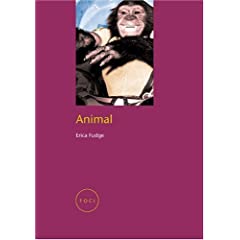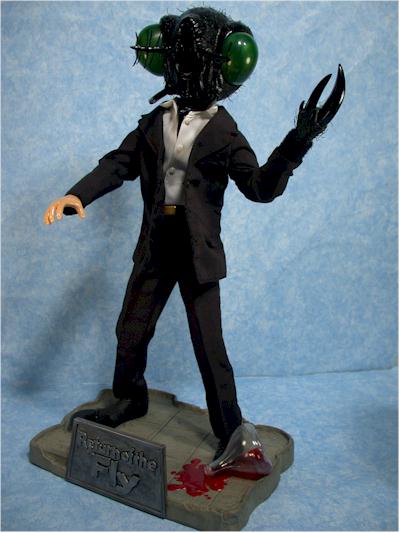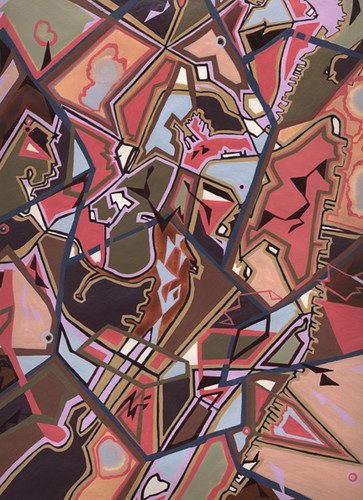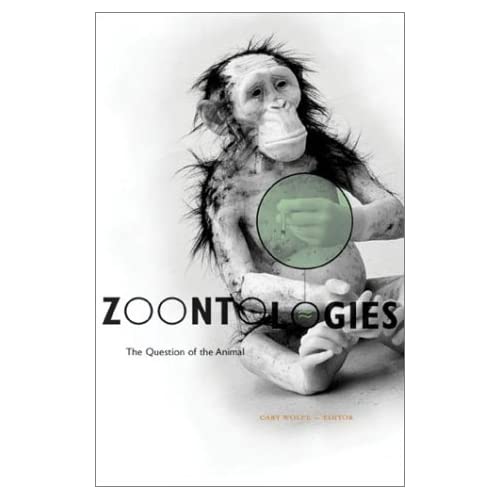Research Journal
-
April 6, 2009
Reading: Animal, Erica Fudge
(Corey Wolfe, Michael Pollan, Erica Fudge, read like cornball-edly obvious fictional names, but their books are great)
At ITP I’m teaching a class called “Animals, People and Those in Between.”
This book, in addition to The Animals Reader, was super-useful, covering a lot of ground both on the history of people’s attitudes towards animals (from Aristotle, Descartes and Bentham to Peter Singer, and Tom Regan, Carol Adams, Yi-Fu Tuan et al), but also a survey on more radical and critical takes on the subject.Animal is a clear and critical guide to ‘reading’ animals, and asking questions of everyone trafficking in animals, from the view points of science, fashion, advertising and philosophy. Fudge gives a great summary of Peter Singer’s work in chapter 2, “Real and Symbolic: Questions of Difference” as well as magic acts revealed in her treatment of Ham the NASA chimp, the His Master’s Voice dog, and PETA + fake fur.

Animal by Erica Fudge …You can get the book on Amazon
This book’s part of the Focus on Contemporary Issues series by Reaktion Books, who has a great series called Animal. The series’ titles include Ant, Bear, Cockroach, Cat, Crow, Eel, Elephant... They’re written by a spectrum of eminent nature-culture writers. I loved Fly, which covered the natural and cultural histories of, yeah, flies. Author Stephen Connor describes the fly as one who “takes its pleasure promiscuously, restlessly, unswervably, unashamedly…. Each fly is king of his own country. He knows no laws or conventions…He has no work to do—no tyrannical instinct to obey… what freedom is like his?”
This is my kind of reasoned, academic, delicious anthropomorphism.

Return of the Fly collectible -
April 6, 2009
Systems Analyst
Tags:…I owe the idea of an internet vitrine to Molly Dilworth, who suggested I start putting all my crazy greedy research up in one place. Thanks MD. Her amazing paintings can be seen HERE. And this is one of them:

A re-imagining of Guy Debord's seminal psychogeographical 'Naked City' map -
April 6, 2009
Reading: Zoontologies, Carey Wolfe, ed.
Zoontologies, the Question of the Animal is a collection of essays about “those nonhuman beings called animals (who) pose philosophical and ethical questions that go to the root not just of what we think but of who we are. Their presence asks: what happens when the Other can no longer safely be assumed to be human?”
These collections about “The Animal Question” have spawned and multiplied, many of their core contents get re-spun from book to book, so there is a lot of overlap from collection to collection, but also some real gems. My favorite in this book is by Alphonso Lingis, titled “Animal Body, Inhuman Face.” It’s an über-sexy, gorgeously written essay that extends (and exemplifies the often impossibly textual) Deleuze + Guattari’s Becoming-Animal theories, writ on bodies – on our bodies as ecosystems, our bodies as animal bodies.
Mathew Calarco’s review of Zoontologies writes that “Lingis’s essay overflows not with examples of “the animal” but with animals (understood broadly as living beings), in their multiplicity and heterogeneity: bacteria, sea anemones, rodents, rabbits, cats, cockatoos, jellyfish, whales, lions, wolves, and foxes, to name only a few…Lingis is also concerned to draw attention to the becomings-animal that are constantly at work at the very core of the human. It is especially during sex, Lingis argues, that human beings undergo such becomings: during orgasm, “our impulses, our passions, are returned to animal irresponsibility” (172); he notes further, in a passage that is sure to shock those readers who are confident that a sharp line can be drawn between the human and the animal in the realm of sex, that, “When we, in our so pregnant expression, make love with someone of our own species, we also make love with the horse and the calf, the kitten and cockatoo, the powdery moths and the lustful crickets””
Textually bestial?
